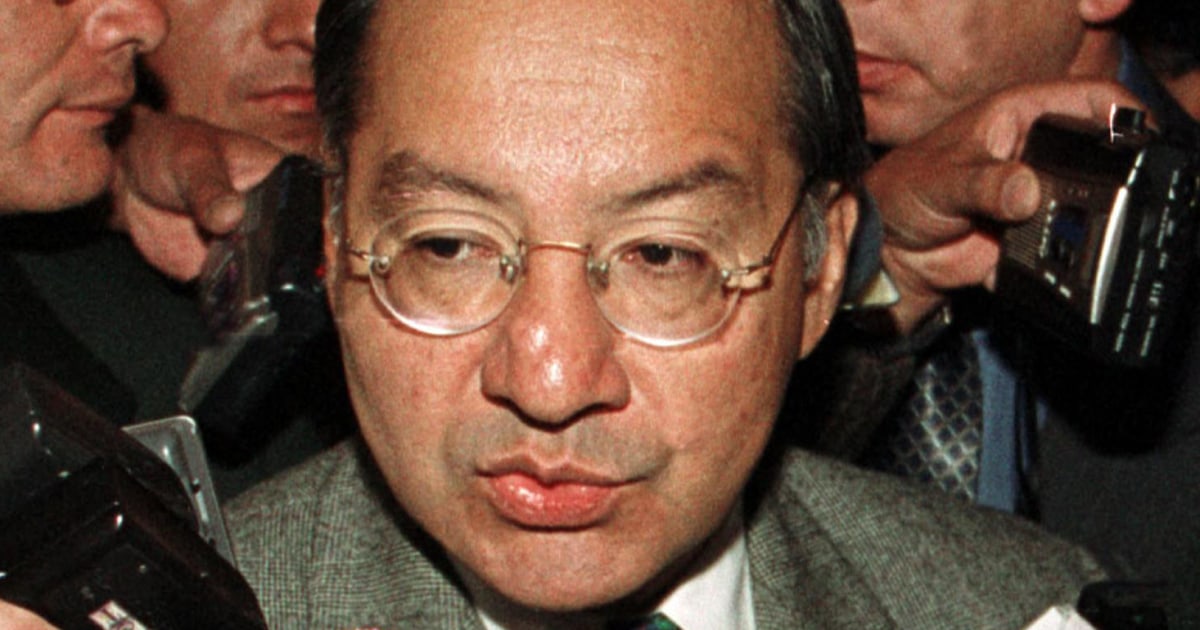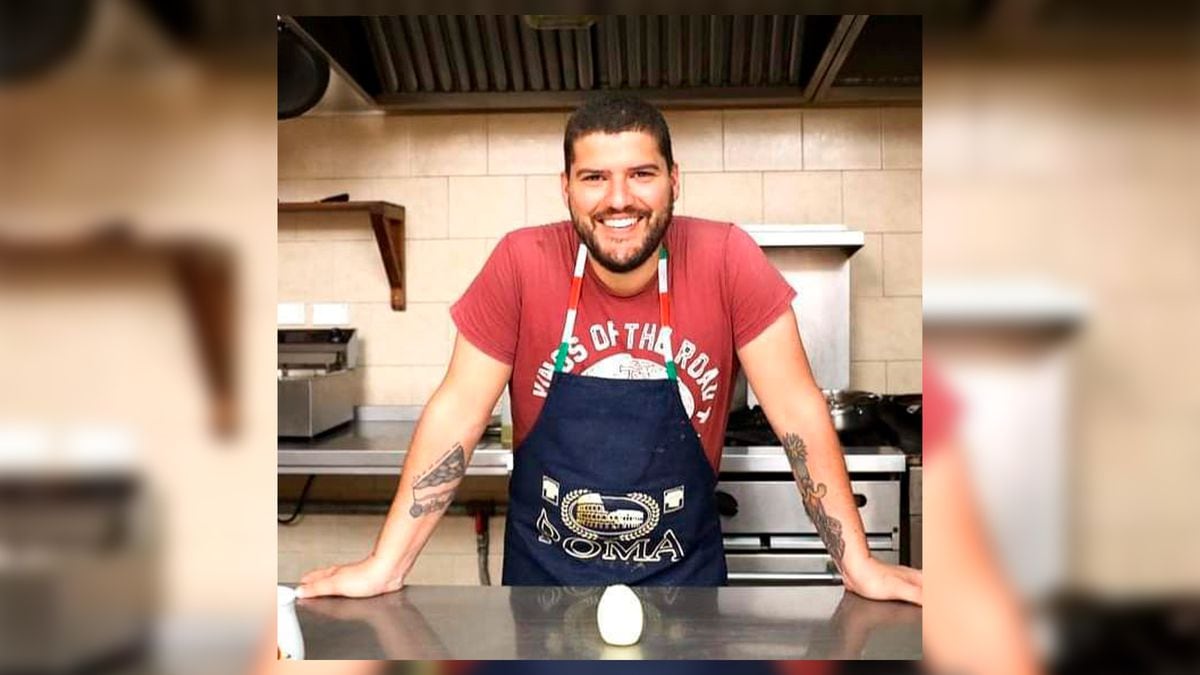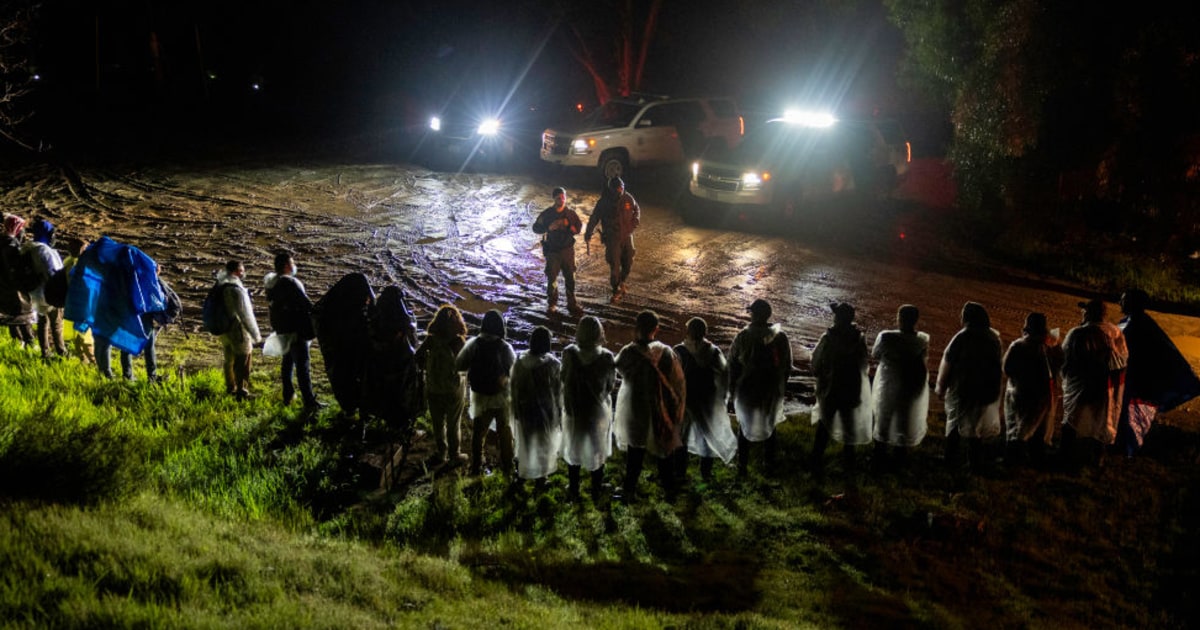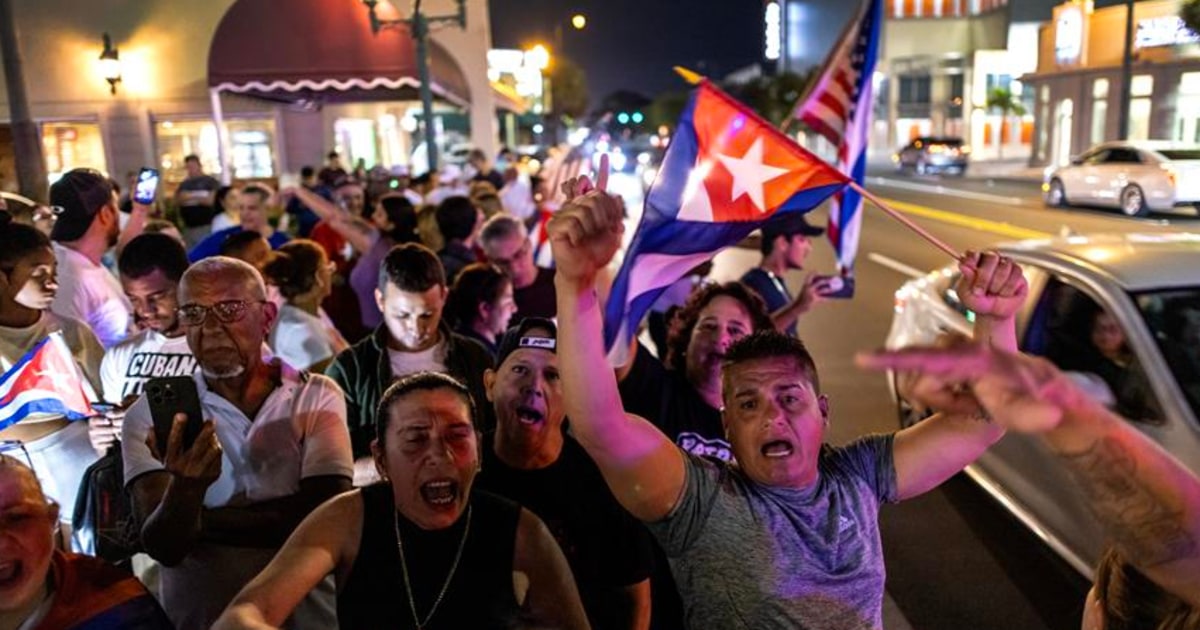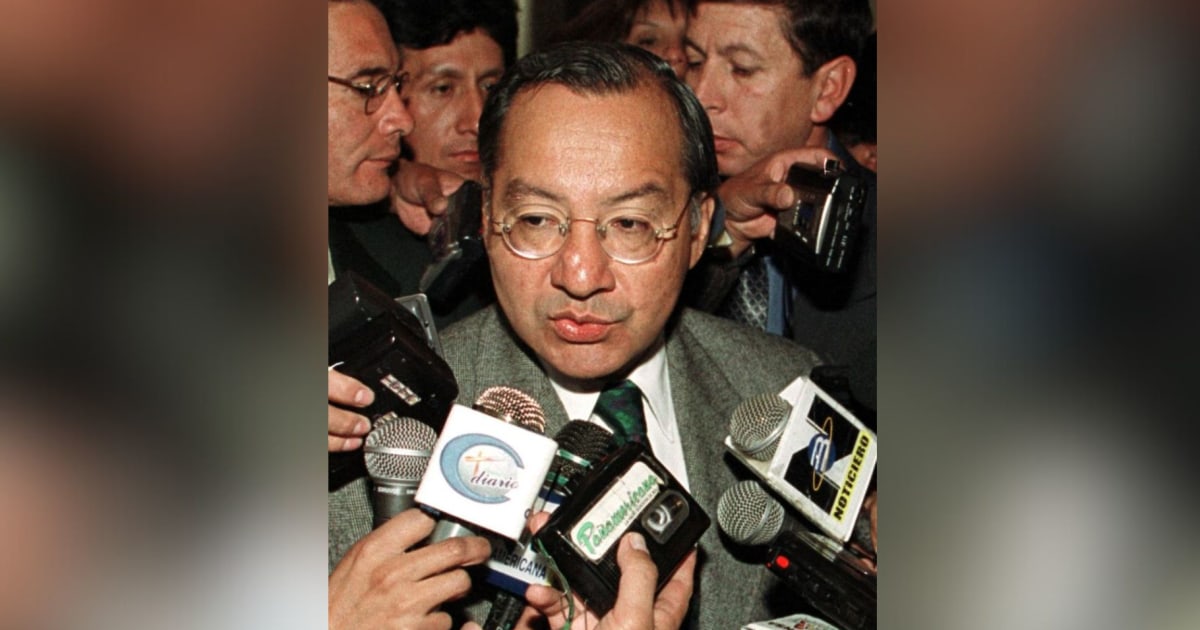There is a photo in which it seems, while I stick out my tongue, that I am dancing with the security agent of the stadium of the Miami Marlins, but it is an involuntary figure, an unexpected image in the midst of the noise or ecstasy.
The eighth
inning
of the semifinal of the V World Baseball Classic between Cuba and the United States was already running in a field located no less than in Little Havana, the neighborhood, today an insular museum populated by Central Americans, which was for decades the cultural heart of the anti-Castro exile.
The improbable lined up the pieces of the political spectacle in a clear, elemental order.
No major league team could afford the payroll of the North American outfit, a
Dream Team
of a new kind.
There is no money that pays for such quality.
The Cuban team, on the other hand, carried an even more disconcerting particularity, made up for the first time by local baseball players, a small minority, and others who already belonged to foreign leagues, athletes whose exodus once turned them into traitors.
This condition did not change for them, it just moved.
Now a considerable part of the exile considered them accomplices of the communist regime for representing the country in a sporting event of such magnitude.
The inclusion in the team had a political bias.
Baseball players who left an official delegation at the time could not participate, nor could anyone who had issued statements against the regime or any of its leaders.
However, Roenis Elías, one of the team's main pitchers, had said shortly before: "I know the government sucks, but I want to represent my country, my thing is to play ball."
Elías, who also came to show solidarity with the prisoners of the peaceful protests of July 11, also belonged to the independent organization that the Major League Baseball players tried to promote a few months before the Classic, setting off the alarms of the Baseball Federation in La Havana.
Carlos Manuel, is escorted by security elements.
MEGAN BRIGGS (Getty Images via AFP)
Other members of that separatist effort, such as José Adolis García (Texas Rangers) or Yordan Álvarez and José Abreu (Houston Astros), received the call from the Federation to participate in the Classic, but rejected the proposal.
Those who did accept, among them Yoan Moncada and Luis Robert Jr. (Chicago White Sox), distanced themselves from any act of political propaganda, knowing, because they knew, that the leaders dismiss sports delegations as if they were sending them to war.
Athletes become docile instruments of triumphalist rhetoric.
At the same time, the baseball players agreed not to declare anything risque, unhealthy ideas or ideological confusion that they could have acquired in the poisoned lands of capitalism.
There was a pact of silence that sealed the experiment.
In Miami, a journalist asked Moncada if he identified with the motto Patria y Vida, the slogan of civic resistance in Cuba.
Moncada did not respond and bewilderment appeared on his face, almost as if he had been asked in Havana who he was dedicating the victory to.
For decades, press reporters corralled the winning athletes in any international event like this.
The triumph could not not be dedicated to the commander in chief.
However, behind these known skirmishes, some unpublished scenes were leaking.
the
catcher
Ariel Martínez, hired in Japan through the Cuban Federation, laughingly declared that he loved Miami, that he would like to sign for the city's team.
They asked him if he would eat a sandwich at the Versailles restaurant, the legendary headquarters of political exile protests, and he said that at Versailles a sandwich and whatever.
If some time before someone expressed something similar, he could not directly return to the island.
I continued to believe —despite the marked effort of many to reject a team instrumentalized by the totalitarian machine;
a team that did not say everything they wanted to hear, in the way they wanted to hear it—that exile had disembarked and partially conquered the heart of Castro's symbology.
We were not, of course, facing an absolute change of record, desire in politics is always a partial gain, but we had put a succulent pike in Flanders.
For the first time, the baseball players didn't look like soldiers, but people, and that, more than soldiers from another army, was for me the denial of Castroism.
Game attendees protest from the stands.
ERIC ESPADA (Getty Images via AFP)
That team, which debuted with two defeats, was nothing, a rubble, the representation of a broken country, and basically the initial contempt received gave them a reason and gave them the treasure of rage.
From there they chained three consecutive victories to reach the semifinals in Miami.
They invented rituals, a festive gesture, suddenly possessed by a rare enjoyment that the Cuban teams were unaware of, or that at least in the last decade they had only pretended.
It didn't look like a communist team because it wasn't a scared team, and people didn't quite know where to classify them from the moment a guy from the National Series was batting in the lineup
behind
a big league boss.
Anyone who has experienced it knows that, since the Harvest of Ten Millions, when totalitarianism exaggerates its triumphant grimace the most, it is when it least triumphs.
This explained his effort, useless from my point of view, to adapt that mixed set, which contaminated the purity of his segregative ideology, to the mold of Newspeak.
He also thought that a political alternative cannot be built from cynicism, and always, after all, you have to want something.
One cannot afford, in the forms of reparation of justice, to suppress pleasure.
Even if it was from certain politicians,
influencers
loud, and almost everyone who has turned the slogan of freedom into a business, there were still humiliated people, exodus without forgiveness, to whom my proposal, reasonably, still seemed defective.
***
I got to the Marlins stadium early in the afternoon.
Thousands of Cubans moved around the place from many positions or affective combinations that escaped any binary scheme.
I even found fans wearing
Team Asere
jerseys .
That nickname, which emerged from a meme page, was effusively adopted by the regime's top brass, immediately spoiling it.
So many intricacies made my position even more strange, determined to rescue the players from outrage, trying to find signs in them that would allow me to appropriate them, without joining the established modes of celebration.
Like Michelet, he could say "I esteem the popular arm, but I hate crowds."
Outside, in the usual protests, I perceived the deep civility of Ramón Saúl Sánchez, leader of exile and a specific type of patriot in extinction, an elegant, austere and calm man, who wore a guayabera and called for peaceful protest without opposing the dispute. of the game.
I was moved by his presence, how was it possible that this man could not live in Cuba?
The meeting quickly turned into a mess.
The United States beat Cuba from the start and the focus immediately turned to another type of duel.
In the fifth inning, the artist Danilo Maldonado, known as El Sexto, charged onto the field from
center field
with a sign calling for the release of political prisoners on July 11.
He was an inspiration.
There were waves in the public and choruses of anticommunism or national reaffirmation.
The shocking gesture inaugurated the season of disobedience.
A while later, a boy would do the same, Antonio Fernández, with whom I later spent the entire early morning in a prison in Doral.
Then I was afraid, a known nerve.
I talked to my girlfriend and we planned something.
I went to the bathroom and walked for a while in the corridor of the third section, scared.
It was necessary to burn that spasm first.
Once the fear is overcome, that is, once exhausted, once suffered, the event then occurs automatically, a series of impersonal steps.
This phase difference guarantees the action, the startle is always deferred.
We walked to the
right field
area , where the protective mesh ends, and I asked a fan for his Cuban flag with the Patria y Vida sign.
My girlfriend suggested to a lady that she record with her cell phone.
I ran downstairs and, about to finish that theater, I fell suddenly on the ground, stunned.
A slow man, almost limping, tried to cut me off, but I moved diagonally, looking for second base, and easily outdistanced him.
I saw the open field, a blooming sequence, like a dazzling mischief.
I invaded the diamond between first and second and, near the lime line, I stopped in front of
the visitors'
dugout , the bench of the Cuban team.
It was the bench of my team, the cast for which I had been torn to pieces since I was a child, and for that very reason the cast that I had to face in order, if necessary, to destroy each other once and for all in a lacerating dance of failure streaked with love. .
There is no route to freedom that does not desecrate our altar of emotion.
I should have run more, stopped due to fatigue, but I tried to turn my back and a band of uniformed men reduced me.
A big man gave me a spectacular
tackle
and my head bounced off the grass.
I was never able to fully unfurl the flag, the wind wrinkled it but also swelled it up like the sail of a ship stranded in a pool of light, which is, after all, what a ball field is.
“Look over here”, I wanted to say to the Cuba team without opening my mouth.
"What are we going to do?
Whatever we are going to do, the defeat of the master, let's do it together”.
I trusted the language of my sprint.
Later I learned that for some—prisoners of the didacticism of the slogans, an evil of Castroism unfortunately exported to exile—the flag and my bullfight did not seem like a sufficient definition.
But my body was the definition, because it was the body of an outcast.
What else?
Why would he run then?
After all, he was also grateful for the loose sign, that no one could appropriate it entirely.
I intended to offer a play—a broad term that arcs here from Lyotard to Vin Scully—that I was happily denied as well.
In the heart of exile, a place so powerful, that I still live in my own right, the gesture could include my opponents.
Freedom is the risk of being confused, and then the fullness of assuming that confusion as one's own.
I needed to act in spaces where what I am did not totally depend on me.
Back on the street, after ten hours of detention, I received majority support.
So much so that it embarrassed me, but I think it has to do with the fact that we are saturated with words and orphaned with facts, even facts outside of Cuba, with much less consequences than any act committed from the pressure cooker.
However, I also had to deal with the local watercolourists, those costumbrist notaries of the aftermath, like the writer Néstor Díaz de Villegas, who tried to exile me from my gesture and turn it into an illiberal episode, a decrepit fable of self-pity.
In any case, such efforts are ultimately fruitless, because the trick is that you have to come running before and keep running after.
The stage of the stadium was just another of the moments in which my career crosses the general gaze, to later continue in the shadows.
“Why did you do it?” a policeman asked me on the way to the prison.
"Because I have friends who are political prisoners," I told him, which also included the paraphrase of an idea by Wislawa Szymborska referring to poetry: "I prefer the ridiculousness of throwing myself into a ball field to the ridiculousness of not throwing myself into a ball field ”.
I don't have to ask anyone's permission, not even the former team of my loves, to belong to my country.
Follow all the international information on
and
, or in
our weekly newsletter
.
Subscribe to continue reading
Read without limits
Keep reading
I'm already a subscriber

/cloudfront-eu-central-1.images.arcpublishing.com/prisa/7SORAJC3O2DQ3CUQI33QUJEPLI.jpg)


